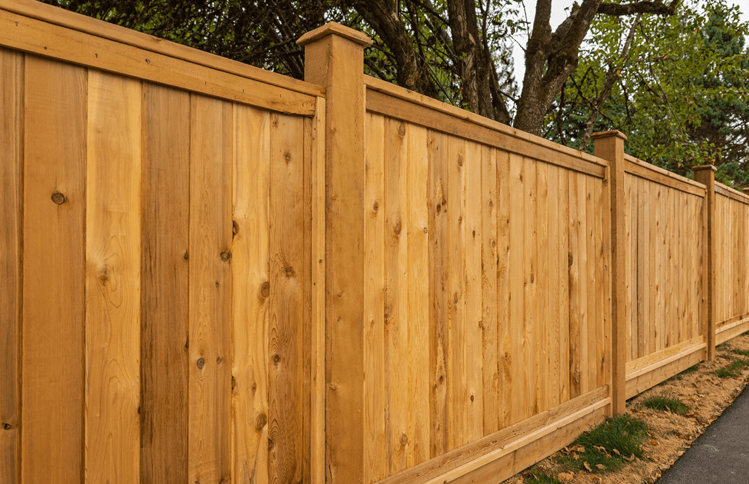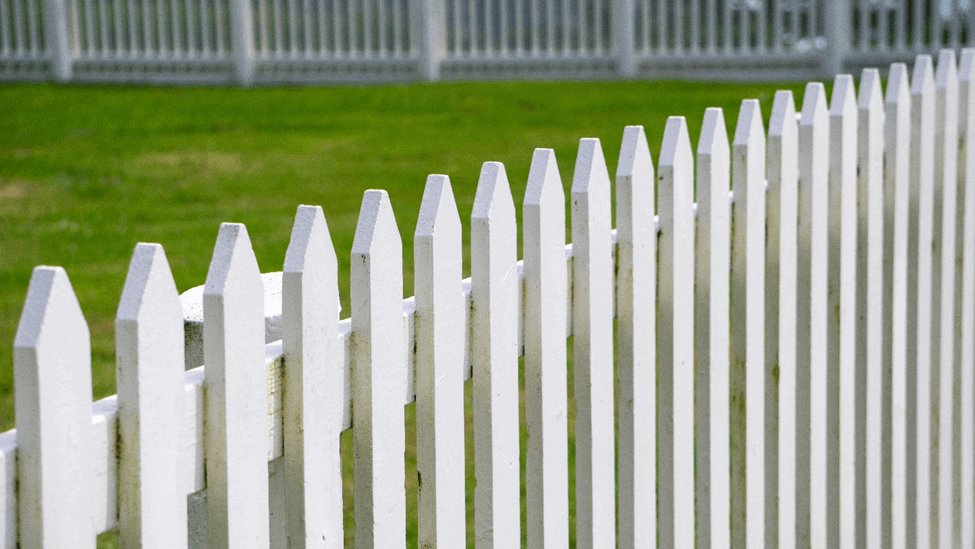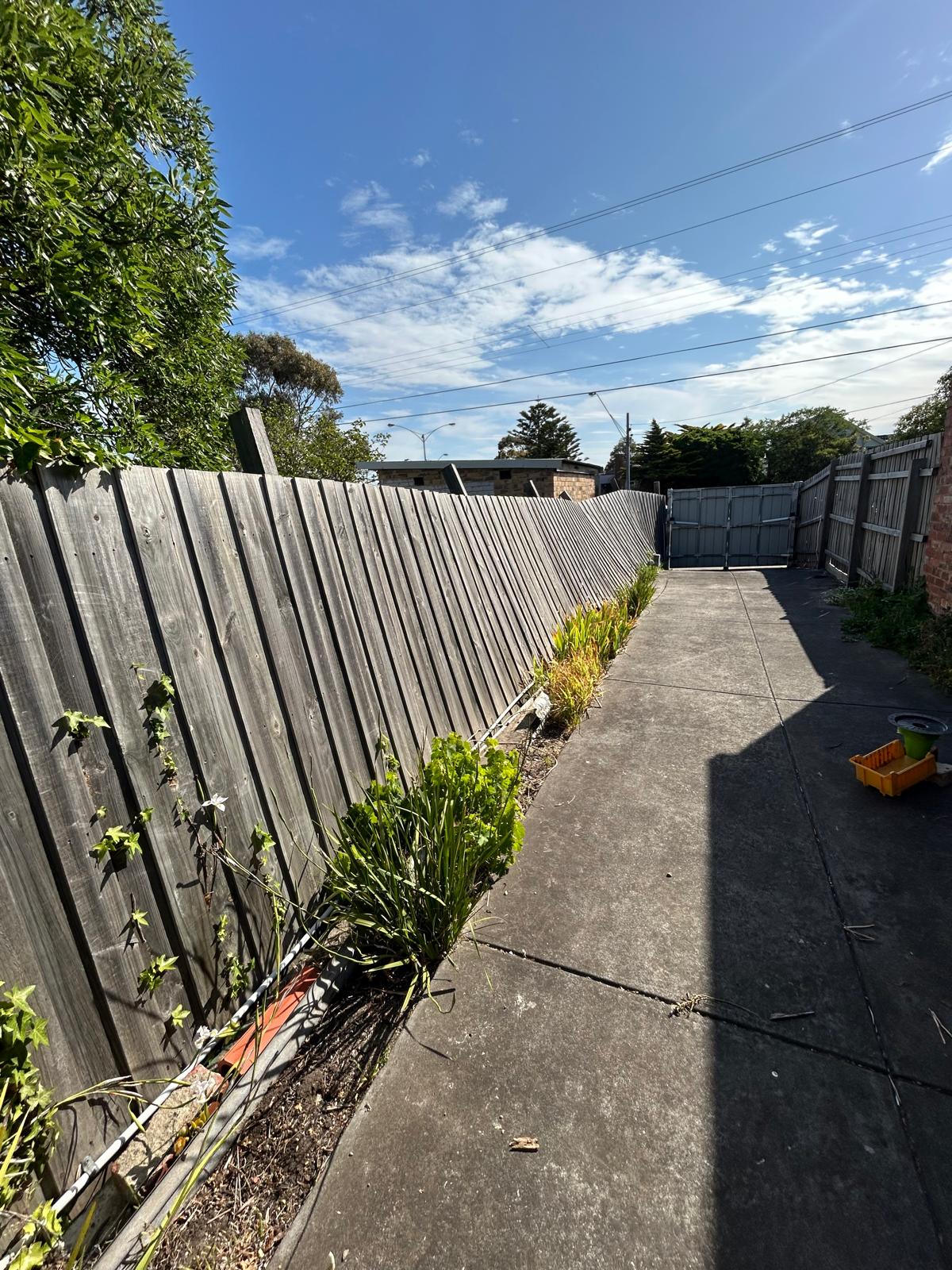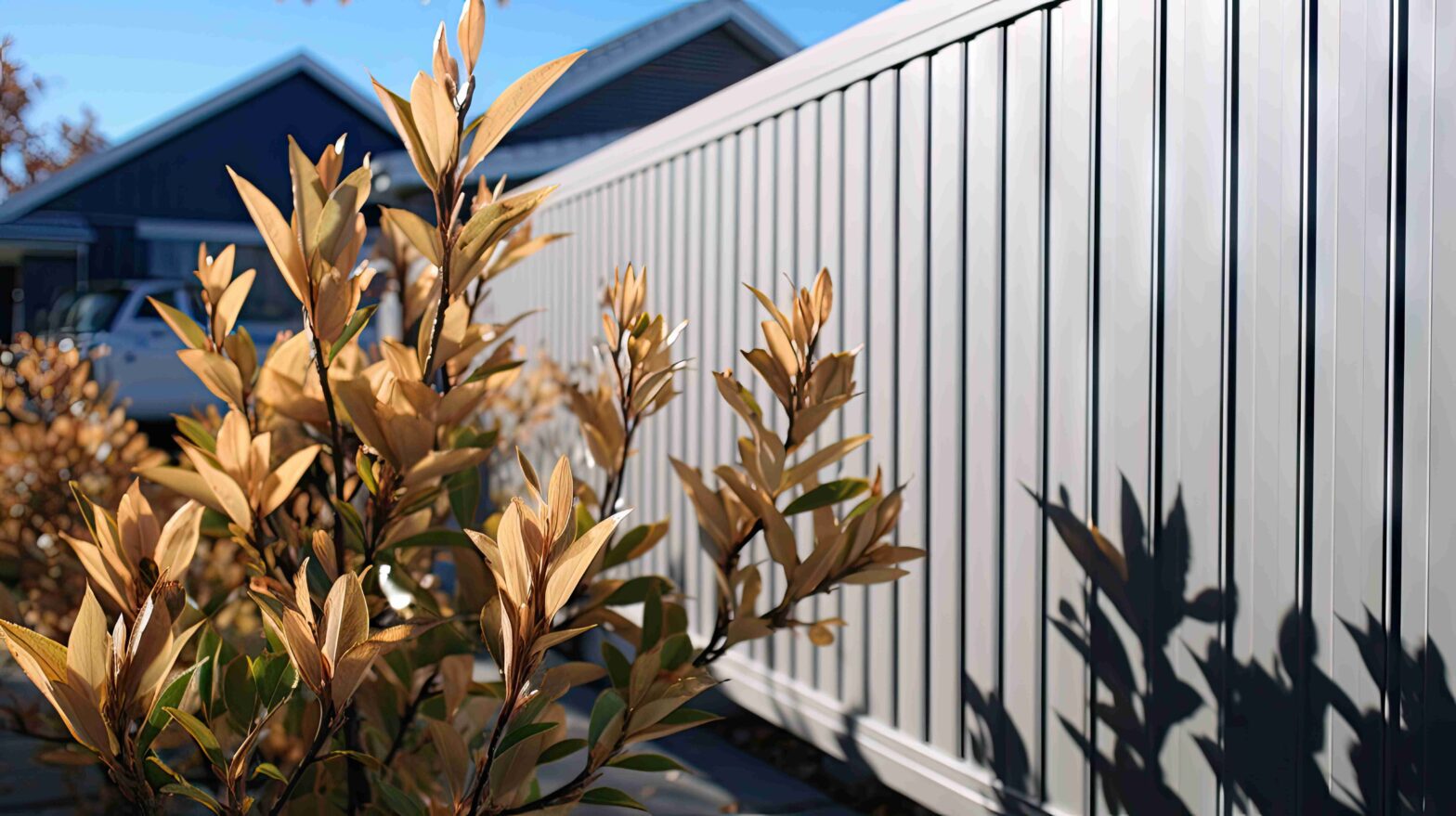Key Differences in Design and Purpose
Surprisingly, these two designs have been around for thousands of years. The first fences were rudimentary but with the same purpose as fences today – to keep everything people need in and keep everything they don’t want out.
These were mainly open fencing styles made from wood and other light materials. Often associated with the American dream, picket fencing typically features vertical boards attached to horizontal rails, allowing for an open, charming look. Today, modern picket fence styles are often attached to sturdy fence posts and fence boards that provide greater stability while maintaining their traditional appeal.
Meanwhile, privacy fences were reserved for the rich and famous at the time, not only for maximum protection but also to prevent passersby from peering into their estates from a distance. These were more like walls than fences, as they were mainly made out of brick and stone.
Despite having more options in this day and age, fences are still designed as open or fully enclosed. That said, a third fence style now exists, a middle ground between the two. Here’s a summary of the designs relative to the options GFences offers.
| Open | Semi-open | Privacy |
| Picket
Tubular Steel Wire |
Aluminium Slat | Timber
Brushwood COLORBOND® |
White picket fences aren’t designed to thwart intruders, but people in the old days weren’t much concerned with such a scenario. During colonial times, settlers were more concerned with securing as much land as quickly as possible. Pickets were easy to make and erect, not to mention simple enough to tell people this was their land. Nowadays, various picket fence styles are available, each offering a unique aesthetic appeal, but all serve the same purpose of defining property lines.
On the other hand, properties enclosed in privacy fences are easy enough to understand the message their owners are sending. They wish for their privacy to be respected, but that also means they can’t see what’s going on unless they step outside or go to higher ground. Nevertheless, it’s an acceptable trade-off for many.

Picket Fences vs. Privacy Fences: A Comparison
| Picket Fence | Privacy Fence | |
| Wind Resistance | Open fence design allows wind to pass through between the pickets unimpeded | Designed and rated for use under extreme winds such as cyclones |
| Water Resistance | Only when coated with an all-weather sealant | Varies by material |
| UV Resistance | Only when coated with an all-weather sealant | Varies by material |
| Fire Resistance | Treated to reduce the likelihood of ignition, but strong fires are still a risk | Varies by material |
| Impact Resistance | Not made to take major hits | Varies by material |
| Noise Reduction | Not made to dampen noise | Only brush fences have this |
| Coastal Use | Some resistance to salty air depending on the timber but generally not advisable | Varies by material |
| Outdoor Space Safety | Good at keeping kids and large pets within the yard; small pets may still escape | Excellent even at keeping small pets within the yard |
| Aesthetic Appeal | Gives the property a look akin to colonial-era homes | Varies by material |
| Cost | Requires fewer materials to produce, making it more cost-friendly | Needs more fencing materials to fill every linear metre, adding to the overall cost |
| Fence Installation | Easy to install, with some even performing DIY work thanks to its lightweight | DIY is possible but usually done by professionals due to the heavy parts |
| Security | Not guaranteed due to its open design and, to some extent, short fence height | Guaranteed due to its lack of exploitable gaps and its height |
| Repair | Damaged individual pickets can be replaced, which can save time and money | Entire sections need to be swapped out, requiring a lot of time and money |
| Maintenance | Regular fence maintenance is necessary to deal with signs of rotting | Varies by material |
| Design Versatility | Ideal as a primary fence but only at the front, as well as for access fencing | Ideal for all-around fencing, both front and back yards, and for access fencing |
| Permit Requirement | Not as often, provided the wood fence project meets council or shire regulations | Most likely, as fence height is an important factor in ensuring complete privacy |
| Sustainability | Timber is sustainable if it’s sourced from responsible sources like tree farms | Varies by material |
Keep in mind that the position of your fence line and the specific area you wish to enclose may also influence your decision, especially if certain fence styles are more suited to different terrain. To further enhance fence longevity, ensuring proper installation of fence posts and choosing high-quality materials can make a significant difference, regardless of the type of fence you choose.
Conclusion
There’s no direct answer as to which of the two is the better fencing option. In the end, it all comes down to personal tastes. If privacy and security aren’t much of a concern and you want to maximise curb appeal, a classic white picket fence will be a reasonable choice. Otherwise, a privacy fence is the ideal option.
Keep up with the latest from Grays Fences & Gates
Subscribe to our blog and get latest news, inspiration, and resources delivered directly to your inbox.



